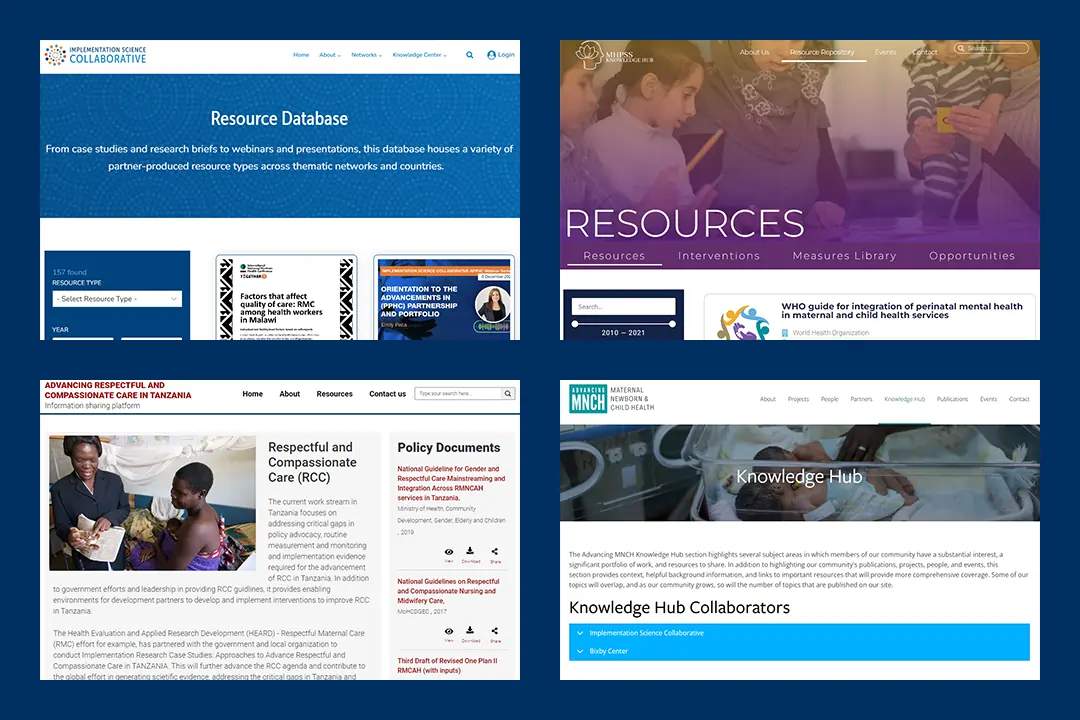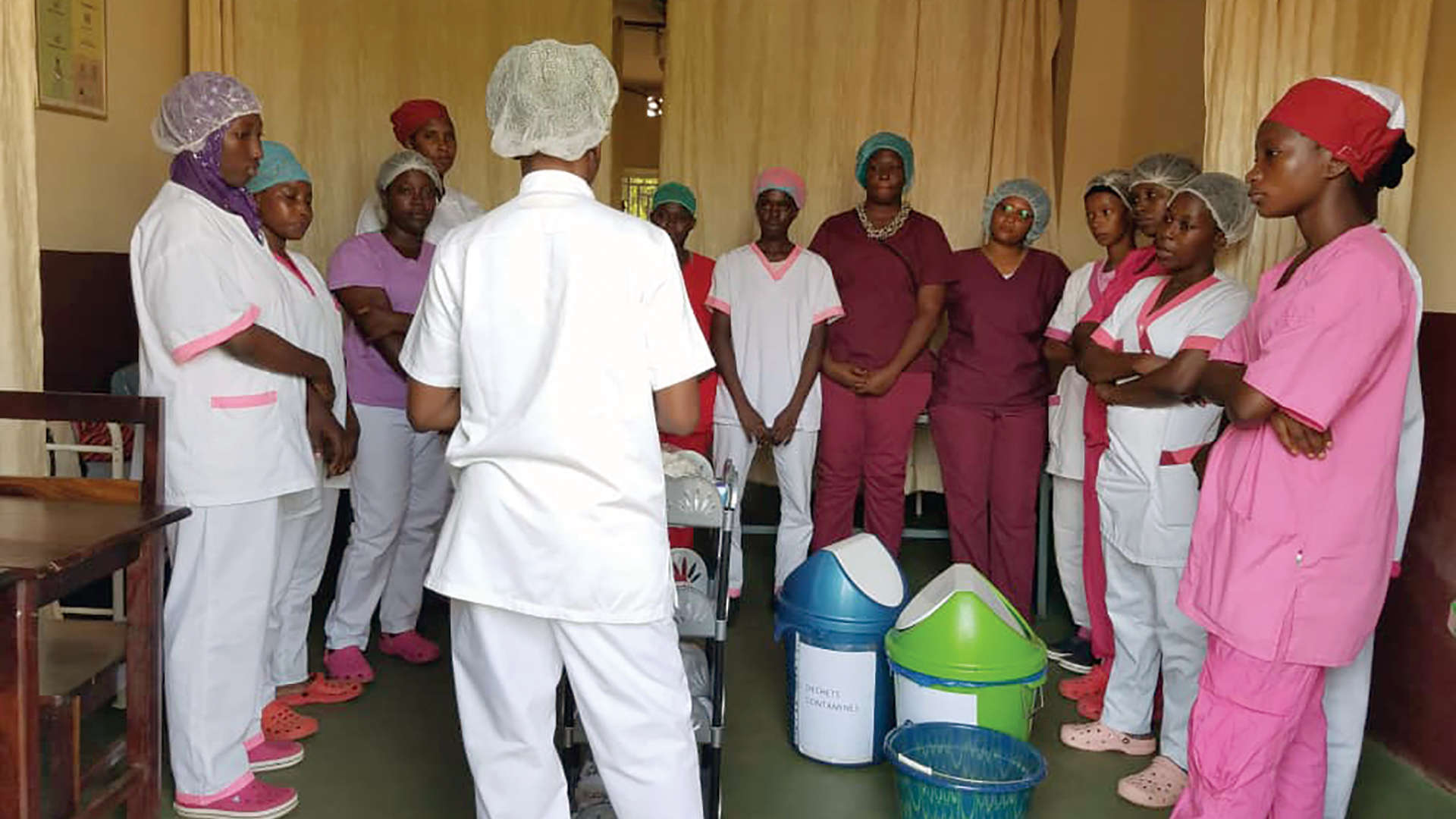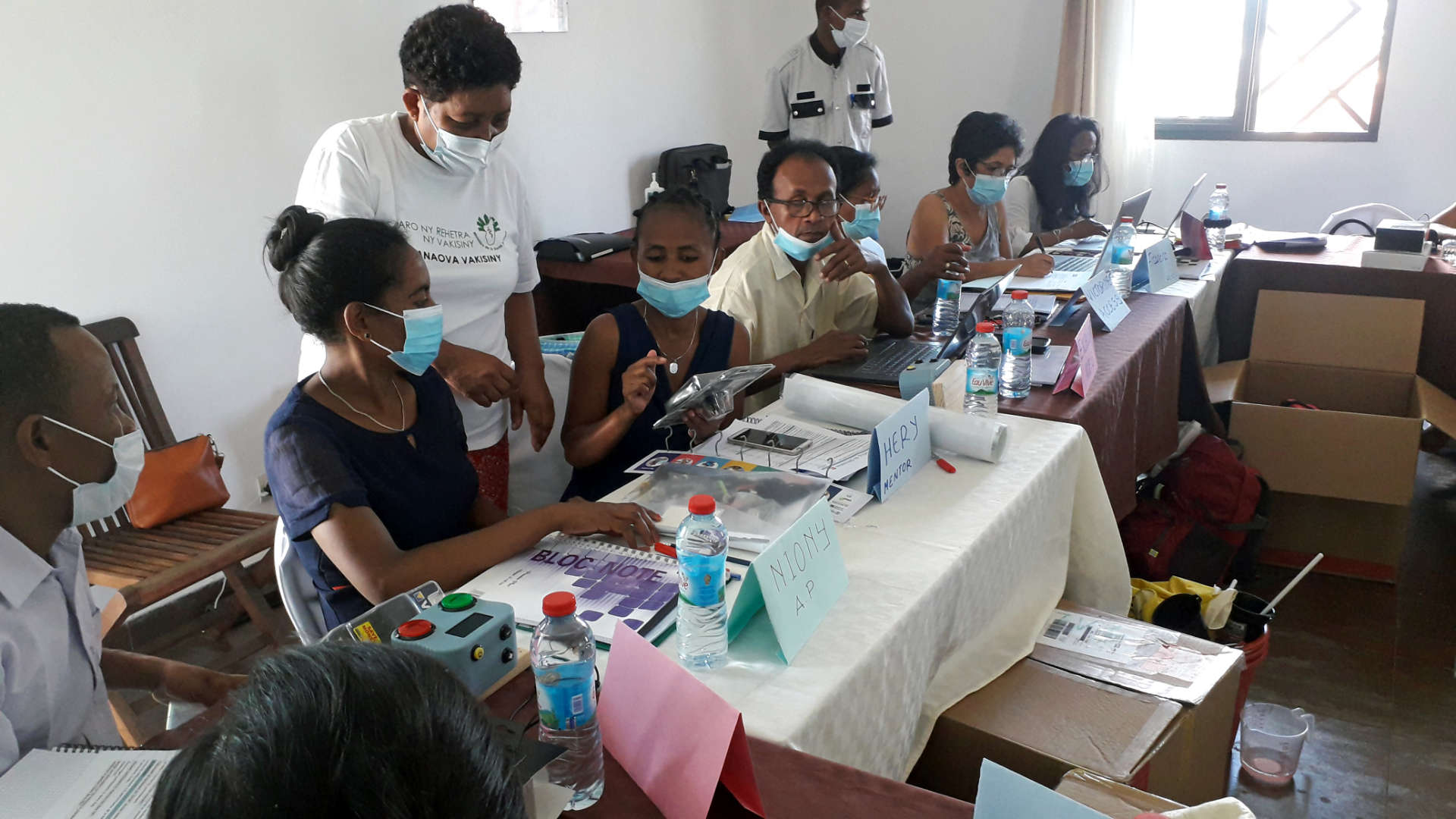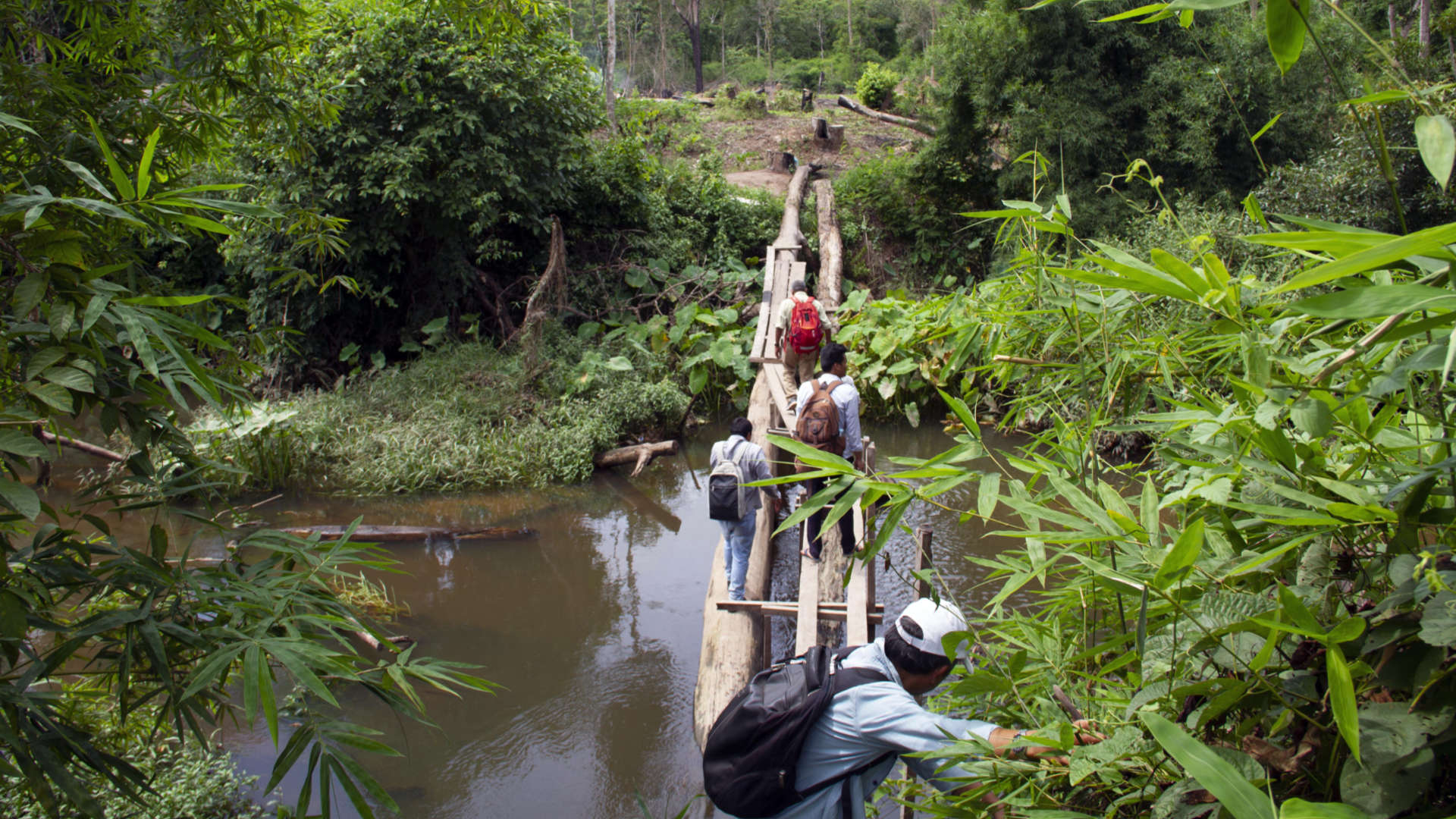Too often, the research and data available to global health practitioners is not accessible, widely shared, or adequately put to use. As the prime implementer of USAID’s Health Evaluation and Applied Research Development (HEARD) Project, URC hosts the Implementation Science Collaborative (ISC), a partnership committed to improving the use of real-time evidence so that influencers and policymakers can see what is needed to mitigate a health or development challenge.
The ISC enables fit-for-purpose research and evaluation designs and provides countries targeted data-to-action support through partner-led networks. This approach contributes to the development of more relevant knowledge products, including case studies, landscape analyses, toolkits, and presentations, as well as improved knowledge management (KM), fortified by learning hubs, webinars, conferences, and online resource repositories.
The ISC is a learning network among partners across subregions, thereby increasing the flow and energy around knowledge exchange within and across thematic area networks as illustrated below.
Thematic Network Examples
- The ISC’s Mental Health & Psychosocial Support (MHPSS) Learning Collaborative (LC) is a global network of stakeholders working to enhance evidence-informed implementation of MHPSS solutions in low-resource settings. The network seeks to foster joint learning, accelerate data liberation, and advance evidence advocacy and uptake of community-level MHPSS interventions through a variety of methods. These include quarterly network convenings with practitioners, researchers, policymakers, and donors to solve implementation challenges and ideate programmatic and research strategies; as well as knowledge dissemination through cross-study publications, a webinar series, the MHPSS Knowledge Hub, and other evidence-to-use products.
- Within the Woman-Centered Care Network, the Advancing Postpartum Hemorrhage Care (APPHC) partnership, co-managed by the HEARD Project/ISC and the Breakthrough RESEARCH project leveraged a complex partnership to advance evidence-to-action needs mutually informed by bilateral implementation programs in Malawi and Madagascar through engagement with national working groups and global communities of practice.
Respectful maternity care partners in Tanzania supported a number of consultations in the past decade in support of translating evidence into policy and practice. This includes a 2023 forum hosted by Tanzania’s Ministry of Health Directorate of Nursing and Midwifery (DNMS), the DNMS Director officially endorsed and launched the Africa Academy for Public Health’s Respectful and Compassionate Care knowledge hub.
- Through child protection country-support learning collaborations, ISC partners advance national action plans on violence against children (VAC) informed by youth survey data. Concurrently, the ISC and other partners have conceptualized a case study to document key program response processes and to explore the introduction and scale-up of priority interventions for addressing VAC in Colombia. The collaborative facilitated cross-coordination among key stakeholders, leveraging synergies and complementing each other’s responses to VAC. Additional ISC support to data-to-action movements is also underway in Kenya, Namibia, and Honduras, with potential to expand to Moldova and Guatemala.
- With process support from the ISC, the International Society of Wheelchair Professionals (ISWP) was established as an independent entity and resource center under the facilitative and technical leadership of the University of Pittsburgh. A consultative and coordinating body, the ISWP hosts a comprehensive library of wheelchair service standards, education, best practice, training, and more. The ISWP also works with the International Society for Prosthetics and Orthotics (ISPO), an ISC partner, on the World Health Organization’s development of the Standards for Wheelchair Service Provision.
Learn more about the ISC’s thematic networks and resource repository at iscollab.org.



